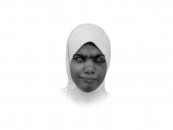Bringing in the army is no solution
Armies like to pack a punch. But landing a punch requires a cheek. This enemy refuses to present a target.

The writer is a senior journalist and has held several editorial positions including most recently at The Friday Times. He is currently senior adviser, outreach, at the Sustainable Development Policy Institute
To what end, one should ask.
Last time we asked that the incompetent government of Aslam Raisani be removed. It took the federal government some three days to concede that demand, rather reluctantly and under pressure. The government also gave the Frontier Corps policing powers. It was thought that the government had done both the necessary and sufficient to ensure that the Lashkar-e Jhangvi (LeJ) terrorists will slink away.
Well they haven’t. If anything, they have middle-fingered the government and the entire decent population of Pakistan.
So, what now? This time, the demand is to hand over Quetta to the army (there are voices asking for much the same for Karachi). Pulling in the army is no cure. The army neither has the capacity nor the required set of skills to deal with this situation. It is stupid to try and kill flies with a sledgehammer. The enemy in this case is both known and elusive.
Armies like to pack a punch. But landing a punch requires a cheek. This enemy refuses to present a target. He is cowardly; he lurks in the shadows; he sends in suicide bombers, the ultimate smart bomb. And how will the army tackle that?
Let’s take its standard MO. It will establish pickets; start patrolling; restrict movement. But, for how long? This is not a riot situation and the army cannot be given this task with no end in sight to that deployment.
The LeJ is a terrorist group. It plans carefully and executes ruthlessly. It is not out to capture territory physically. Its aim is to break the state’s will to fight. Its plan requires psychological dominance. It instils fear; its use of the suicide bomber is meant to tear asunder the social bonds and trust that are the mainstay of the functioning of any society.
And Quetta or Mastung are just two places where it operates. But what it is doing is not to be seen in isolation. Its actions are part of the larger agenda of the Tehreek-e-Taliban Pakistan (TTP), allied with the remaining leadership of al Qaeda in Pakistan’s tribal areas. With most of the Arab foot soldiers having relocated to Yemen, Syria and Somalia, al Qaeda has found more fanatic cadres from among the Punjabi Taliban.
Would the state deploy the army everywhere, which is neither possible nor advisable? While Quetta is mourning, up in Lahore, a Shia doctor and his 12-year-old son were assassinated. This could be the beginning of a trend. The terrorist moves swiftly and uses the element of surprise. He can strike, hunker down, and then strike again. What made Hannibal win at the battles of Trebia, Lake Trasimene and Cannae against much-larger Roman armies? Speed, deception, surprise.
The TTP has put its agenda on the table, clearly and repeatedly. It knows the state doesn’t have the will to fight. The political parties are in disarray over what to do. The religio-political parties lie through their teeth. The state wants to negotiate, but to what end? As noted by friend Feisal Naqvi, negotiations presuppose give and take but the TTP has made it amply clear that it only believes in taking.
One should never shy from talking; very often a strategy relies on talking and fighting. But knowing when to talk is crucial. Fear must never be the basis of talking.
Let it then be said — and I take a broad overview of the situation here, this being no position paper — that deploying the army to fight ghost terrorists is no answer. It will solve nothing. The strategy has to have many prongs.
Take Quetta. It is sad that for long the city has been divided along ethnic lines. But given this situation, concentration of population also makes it easier to start by protecting Hazara areas. Designated army units should be on standby but the lead has to be taken by the intelligence agencies. Flies can never be swatted through brute force but with a deft hand. Actionable intelligence is the most crucial ingredient of this fight. There should be better coordination among different branches and between analysts and field operatives.
We had ample time to develop efficient anti-terrorist units within the police but that opportunity has been squandered. On the plus side, there’s still time to begin to put such units together. The most important baseline is simple: action has to be discriminate and effective. Home in on the flies; take them out with a deft hand and at a time when they are least expecting it.
This requires a set of skills and capability which is currently sorely lacking. Our only response is to send in heavily armed units for fire-fighting. That is an important part of a solution but not the primary one. The terrorists groups send in groups of two or four. They manage, through a superior plan and surprise, to engage hundreds of troops. The pattern has by now been repeated ad nauseam. Sending in the troops hasn’t worked before and it won’t work next time either.
Penetrate the groups. Surprise them. Make them jittery. Take the initiative away from them. Make them distrust each other. Force them into making mistakes.
All of this is a function of superior intelligence and selective use of force, not heavy contingents of army pooping off thousands of rounds of ammo in a fire fight against two or four or six attackers after they have done the damage. “All the terrorists were killed.” Big deal. What does it mean when the objective for which they had come was achieved? And almost always, they come with the knowledge that they will be killed. They have to be captured or killed before they bring the war to us.
And the army, if it’s still not clear enough, cannot do that.
Published in The Express Tribune, February 20th, 2013.
















COMMENTS
Comments are moderated and generally will be posted if they are on-topic and not abusive.
For more information, please see our Comments FAQ